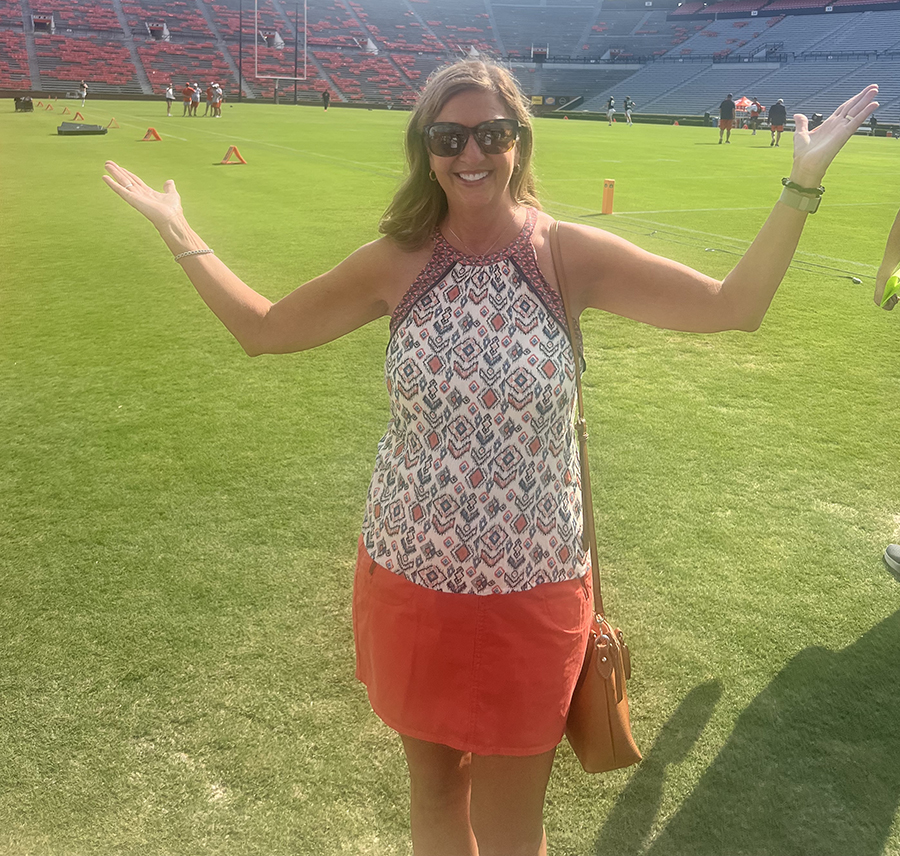
Editor’s Note: Auburn’s Harbert College of Business recently contacted members of our Physicians Executive MBA (PEMBA) program to find out how health care delivery has changed during the COVID-19 pandemic. In the following interview, three medical professionals discuss how a business education meshes with the medical challenges.
HCOB: Are there any specific skills or perspectives you acquired during your PEMBA experience that have been particularly helpful?
Dr. Addison May, PEMBA Class of 2018
Chief, Acute Care Surgery for Atrium Health — UNC Charlotte
 The last part of the program stands out to me the most because it brought everything
together—the strategic analysis, the operations classes, the leadership and communication
skills necessary to work in groups to implement and develop action plans. Under our
current circumstances, we’re trying to get very disparate groups—operational support
systems and clinical support systems, for example—to work together when sometimes
each group has a hard time seeing the status and the needs of the other. That’s true
for any type of disaster. It's communication, command and control while empowering
local decision making.
The last part of the program stands out to me the most because it brought everything
together—the strategic analysis, the operations classes, the leadership and communication
skills necessary to work in groups to implement and develop action plans. Under our
current circumstances, we’re trying to get very disparate groups—operational support
systems and clinical support systems, for example—to work together when sometimes
each group has a hard time seeing the status and the needs of the other. That’s true
for any type of disaster. It's communication, command and control while empowering
local decision making.
In every place that I have practiced, both clinician and operational leaders struggle with the inability to view issues fully from the perspective of the leader’s vantage point, and frequently do not recognize that a gap exists. In times of disasters, that interface really needs to be seamless. Otherwise you have operational and logistical gaps and inefficiencies. The last phase of the PEMBA program dealt extensively with these issues, how to leverage all our skill sets to become truly aligned across clinical and operational disciplines to work effectively together rather than in what is typically a relatively siloed structure.
Dr. Robert Page, PEMBA Class of 2015
President of American Group, Envision Physician Services
 I think the communication skills and the coaching skills I learned are key to what
I’m dealing with today. Every day I'll have a conversation with a doctor who’s stressed
or worried or has a question, and I’m able to calm them down and help them understand
that they're not in it alone. That has been invaluable under our current circumstances.
I think the communication skills and the coaching skills I learned are key to what
I’m dealing with today. Every day I'll have a conversation with a doctor who’s stressed
or worried or has a question, and I’m able to calm them down and help them understand
that they're not in it alone. That has been invaluable under our current circumstances.
Another thing is being able to prioritize and organize my time more efficiently. I used to have a really difficult time with that. And I remember in one of the classes email management was addressed, what to do when you get 500 or 600 emails in a day, how to prioritize what's important and what's not important, what I can shift to somebody else, etc. That's a specific skill I learned that has become increasingly important given the pandemic.
Dr. Ian Hamilton, PEMBA Class of 2009
Medical Director, Blue Cross Blue Shield (BCBS) of Tennessee
 Clearly the leadership skills I learned have become critically important during this
pandemic. It is times like these that leadership matters most. In addition to the
changes I’ve had to make in working remotely myself, I’m responsible for the transitions
my team is making as well. For example, I have a couple of administrative assistants
working from home now, and I need to make sure that they're doing OK, that they've
got the support they need to continue to take care of their clients.
Clearly the leadership skills I learned have become critically important during this
pandemic. It is times like these that leadership matters most. In addition to the
changes I’ve had to make in working remotely myself, I’m responsible for the transitions
my team is making as well. For example, I have a couple of administrative assistants
working from home now, and I need to make sure that they're doing OK, that they've
got the support they need to continue to take care of their clients.
Interestingly, those same leaderships skills are manifesting themselves at home as well. I have a wife and two children who are in the house and it's been a struggle to help my 17-year-old understand the importance of not leaving and that she has a level of responsibility to the rest of the family and to people she does not know, that she could become an asymptomatic carrier. My 20-year-old understands it all a little bit better. My wife is a nurse, so that helps. But certainly, the leadership skills I learned in the PEMBA program manifest themselves at multiple levels throughout my day both at work and at home.
Learn more about the PEMBA Program.


 Degrees & Programs
Degrees & Programs
 Faculty & Staff
Faculty & Staff
 Career Development
Career Development
 Recruiters & Industry
Recruiters & Industry


